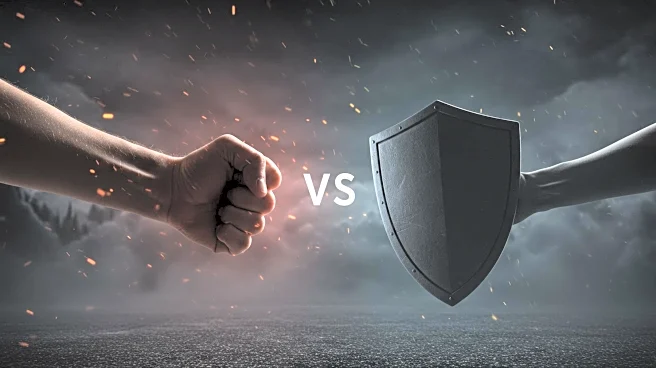What's Happening?
Iranian officials have indicated a potential escalation in conflict with Israel, with Yahya Rahim Safavi, an adviser to Supreme Leader Ali Khamenei, stating that the current situation is a volatile phase rather than a ceasefire. Safavi emphasized the need for Iran to strengthen its offensive and defensive capabilities, including cyber operations and missile development. The absence of a formal ceasefire agreement between Israel and Iran, despite a pause brokered by U.S. President Trump, adds to the tension. Iranian officials have also claimed the capability to strike deep into Europe and potentially U.S. cities, highlighting the growing reach of Iran's military capabilities.
Why It's Important?
The potential for renewed conflict between Iran and Israel poses significant geopolitical risks, with implications for regional stability and international relations. An escalation could disrupt global oil markets, impact international security, and strain diplomatic relations between involved nations. The situation underscores the importance of diplomatic efforts to prevent further escalation and maintain regional peace. The involvement of major powers like the U.S. in brokering ceasefires highlights the complexity of the conflict and the need for continued international engagement.
What's Next?
The international community will likely monitor the situation closely, with potential diplomatic efforts to de-escalate tensions. The U.S. and other nations may engage in further negotiations to establish a formal ceasefire agreement. Meanwhile, both Iran and Israel may continue to bolster their military capabilities in preparation for potential conflict, impacting regional security dynamics.










